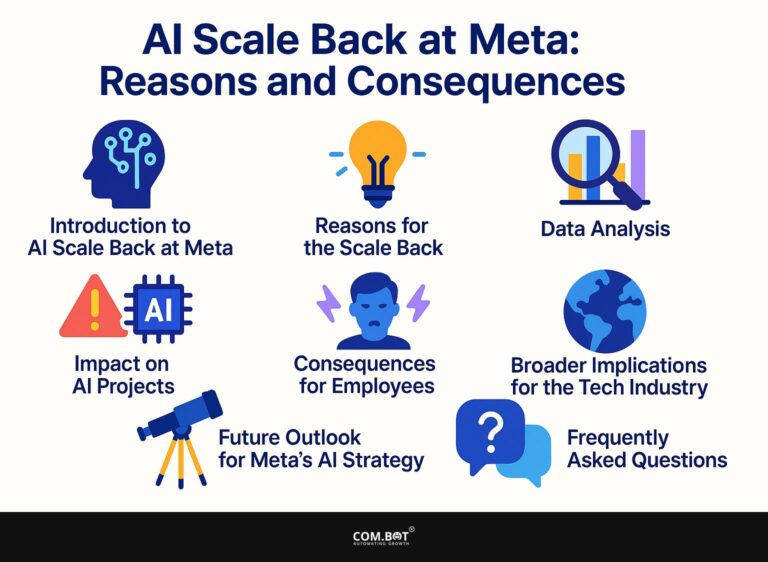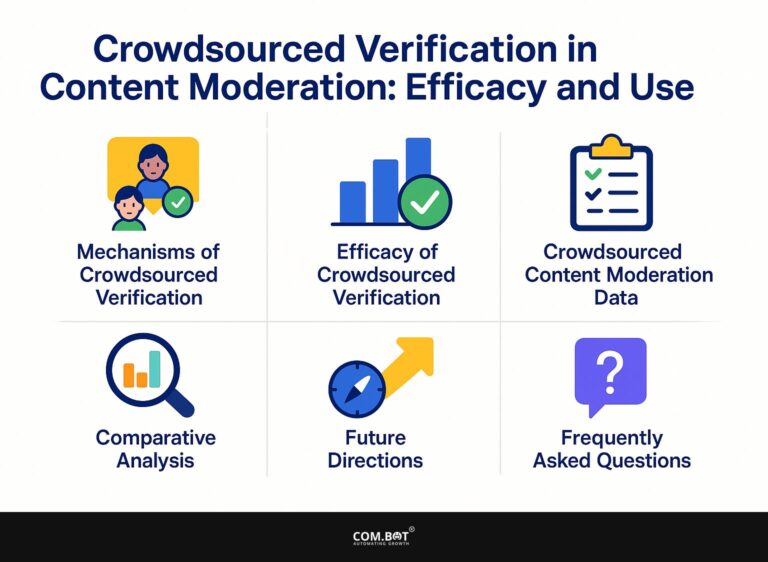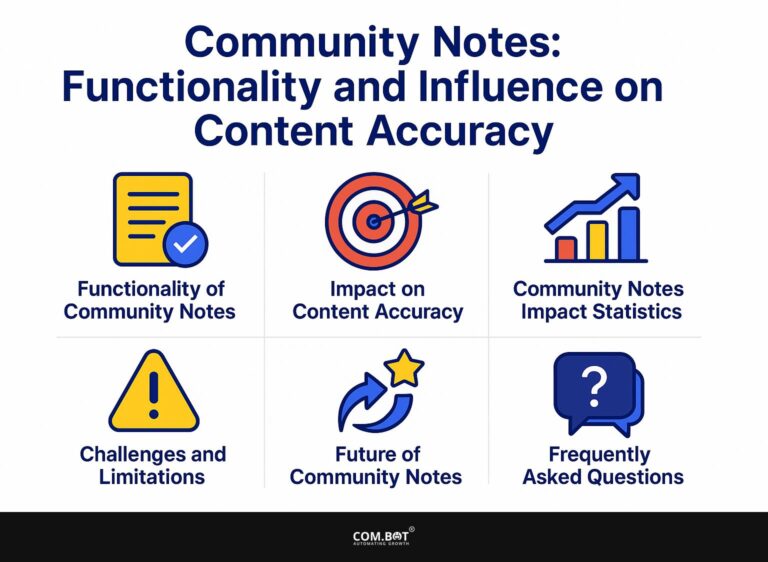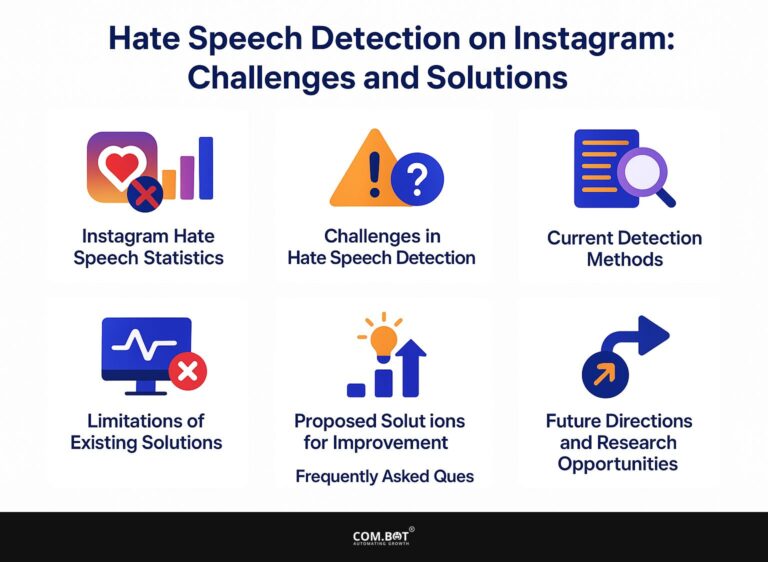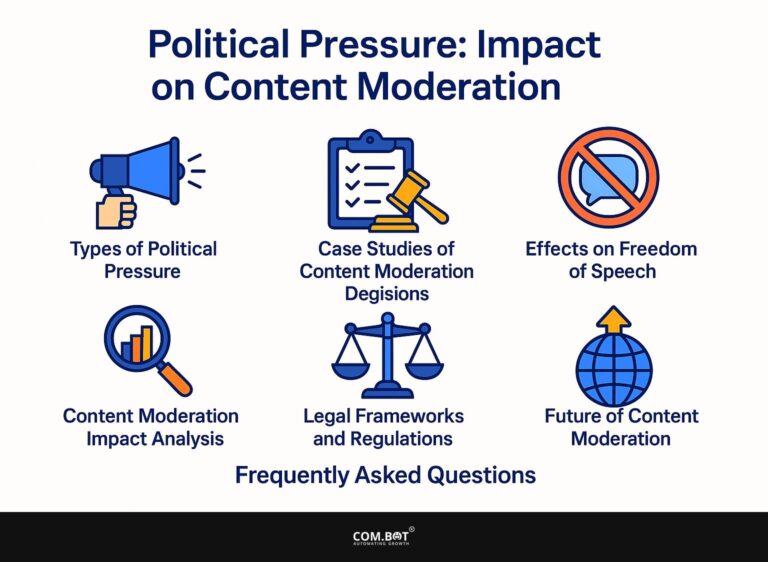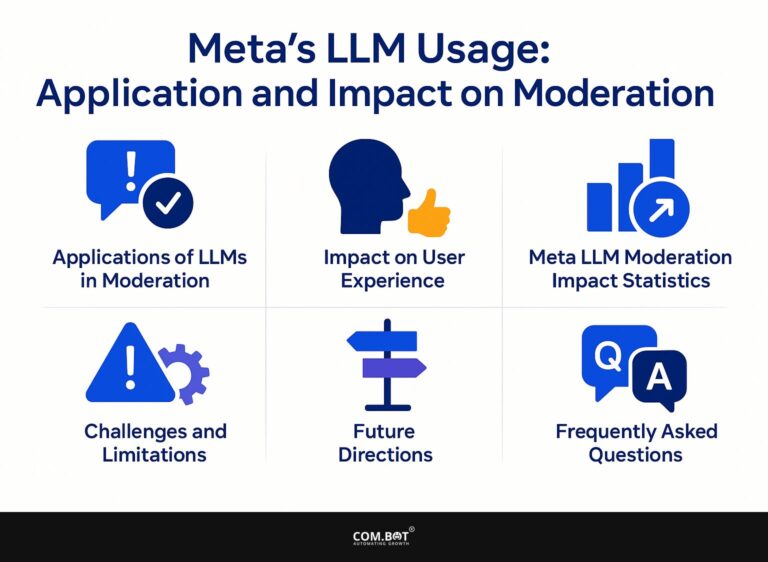User Reporting Systems in Content Moderation: Efficiency and Role
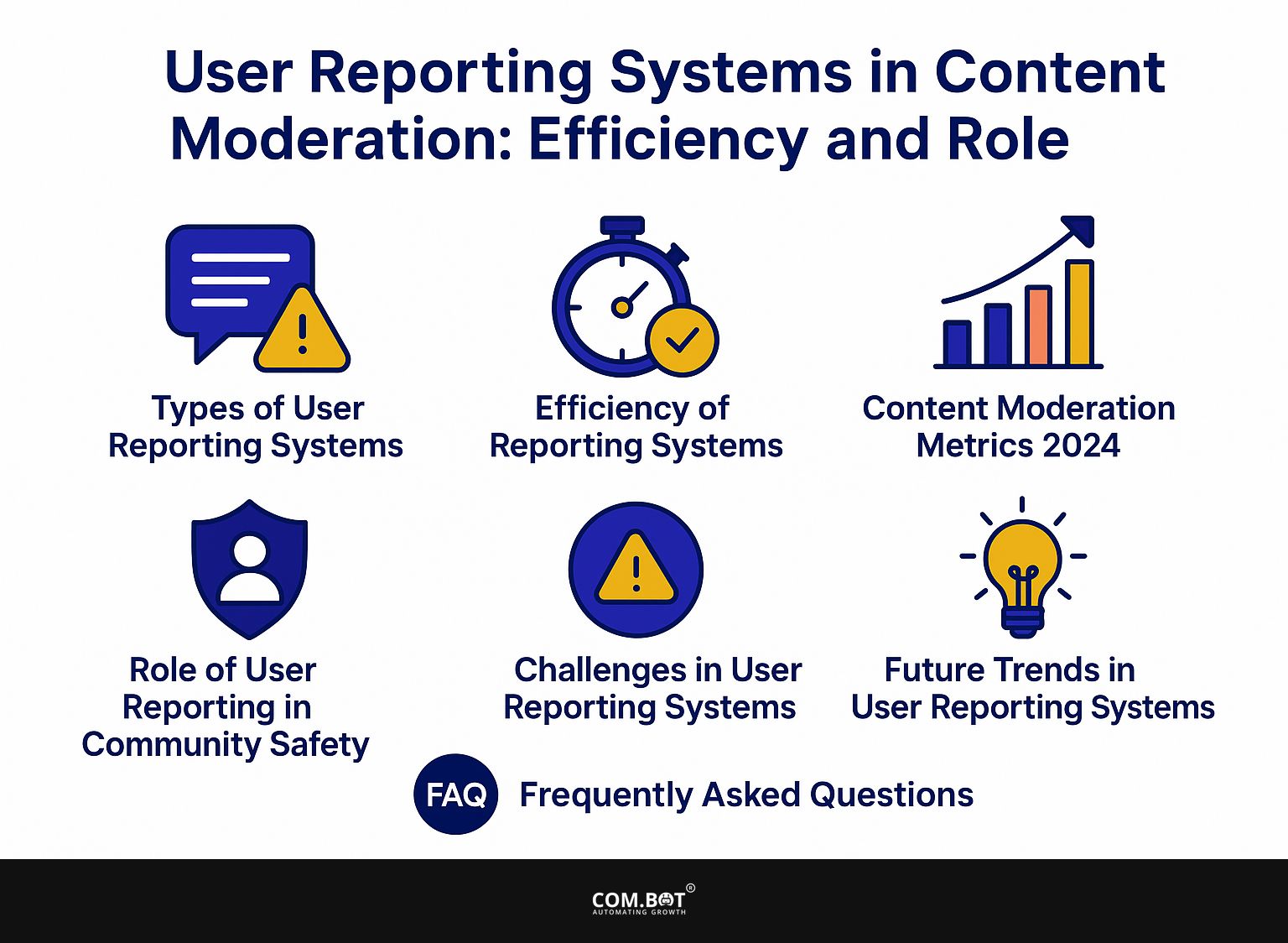
As online communities like Reddit and YouTube continue to grow and evolve, keeping them safe is a constant challenge. That’s where user reporting systems come in—they play a key role in flagging harmful content. By combining human moderation with tools like Cleanspeak, these platforms can spot and address issues more effectively.
This article examines how user reporting works and why it is important. It explains how user reporting gives power to users and deals with issues in online environments. Learn about upcoming changes in content moderation.
Key Takeaways:
- User reporting systems are essential tools in content moderation, allowing users to report inappropriate or harmful content.
- Both automated and manual reporting methods have benefits, but the system’s efficiency is key for quick responses and lowering the moderation workload.
- User reporting is important for keeping communities safe, giving users more control, and building trust in online platforms. However, it also presents challenges in handling false reports, managing privacy and safety, and needs ongoing improvement by using AI and machine learning.
- 1 Types of User Reporting Systems
- 2 Efficiency of Reporting Systems
- 3 Content Moderation Metrics 2024
- 4 Role of User Reporting in Community Safety
- 5 Challenges in User Reporting Systems
- 6 Future Trends in User Reporting Systems
- 7 Frequently Asked Questions
- 7.1 1. What is the role of user reporting systems in content moderation?
- 7.2 2. How do user reporting systems contribute to the efficiency of content moderation?
- 7.3 3. Are user reporting systems effective in identifying and removing inappropriate content?
- 7.4 4. Do user reporting systems always result in the removal of reported content?
- 7.5 5. Can user reporting systems be abused for malicious purposes?
- 7.6 6. Do user reporting systems only rely on user reports to identify and remove inappropriate content?
1. Definition and Purpose
User reporting includes tools that let users mark content as inappropriate. This helps platforms follow community rules and improve user safety.
Platforms like YouTube and Facebook have integrated user reporting systems that allow users to easily report content by clicking a ‘Report’ button next to posts, comments, or videos. Once flagged, such reports are reviewed by moderation teams who assess whether the content violates community standards.
For example, YouTube offers simple options for reporting, like harassment or hate speech, which makes it easy to do. Platforms often offer transparency by notifying users about the outcome of their report, which can help reinforce community trust and engagement.
2. Importance in Content Moderation
Effective user reporting is paramount in content moderation, allowing platforms to quickly address harmful content like hate speech and misinformation.
Platforms like Reddit thrive on user reporting to maintain community standards. Users can mark posts or comments for moderators to review and act on according to the rules.
Metrics such as response time and moderation rates are very important. For instance, Reddit tries to reply within 24 hours for reported content. High moderation rates show that the community is actively involved, while quick response times increase user confidence.
By using tools like automatic alerts for reports and frequent clear updates, platforms can strengthen their trustworthiness and create a safer setting.
Types of User Reporting Systems
User reporting systems are usually divided into two categories: tools that work automatically and methods that require human input, each serving a unique function in handling content. If you’re interested in how AI can be integrated into these systems, you might find our insights on Feedback Collection with AI Bots: Methods and Advantages particularly illuminating.
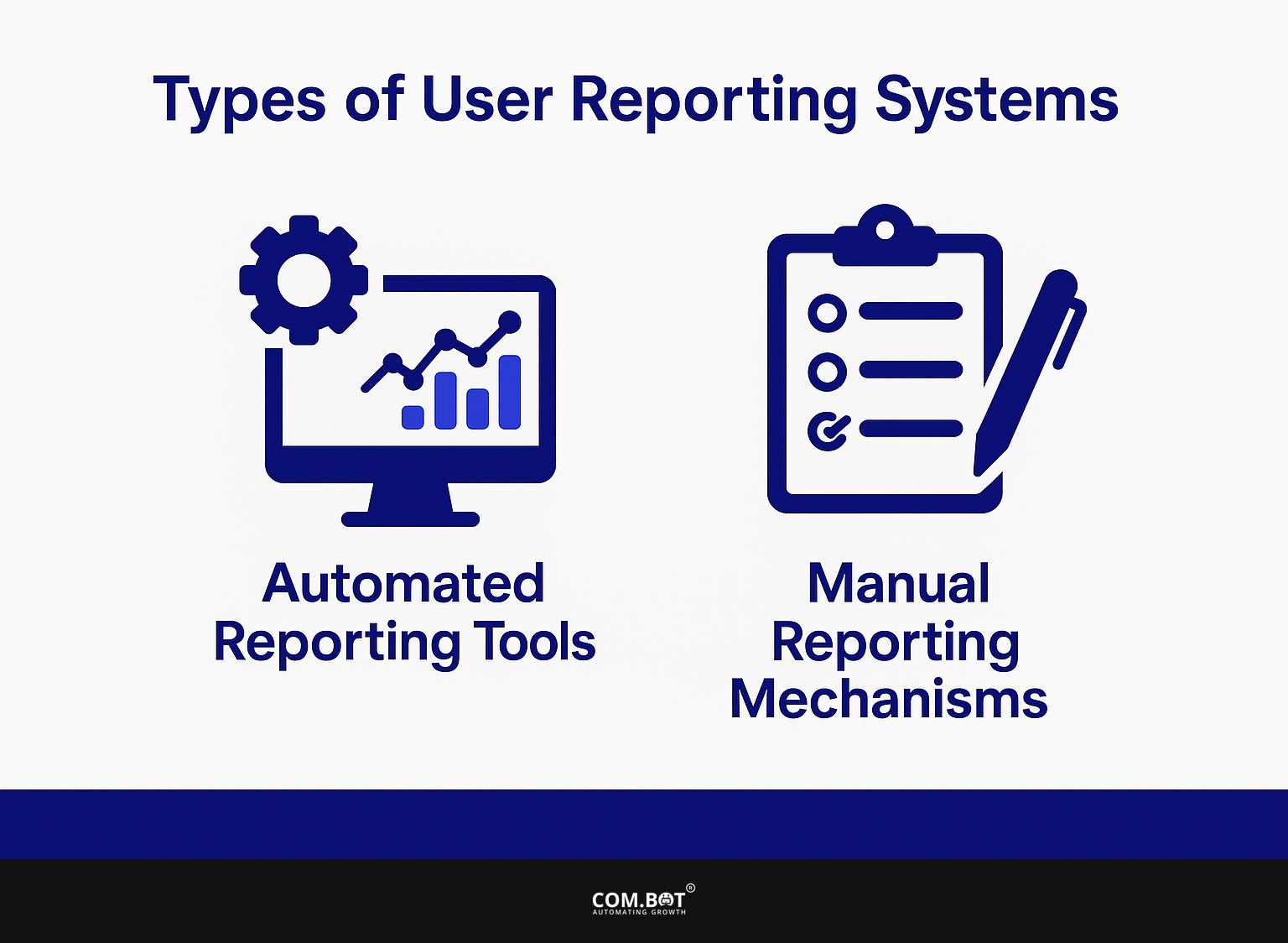
1. Automated Reporting Tools
Tools like CleanSpeak and Checkstep use AI and machine learning to make it easier to find and highlight harmful content. These tools can greatly improve how well content is moderated.
For example, CleanSpeak, priced at $499/month, uses natural language processing to find and filter hurtful words automatically, so moderators can concentrate on more difficult problems.
Checkstep, on the other hand, offers real-time monitoring for potential compliance violations, streamlining the reporting process.
Implementing either tool can reduce manual workloads by up to 70%, ensuring that your community guidelines are upheld with minimal effort.
2. Manual Reporting Mechanisms
Manual reporting mechanisms, often found in platforms like Facebook, rely on user engagement to identify potentially harmful content through direct reporting channels. Users usually follow a simple process to report content. They can go to the post and click on the three-dot menu to find the ‘Report’ option.
From there, they must select a reason for the report, such as bullying, hate speech, or misinformation. Giving more background can make the report more effective.
After a report is sent in, the platform checks it against community rules. This highlights the importance of having clear rules and good communication to encourage user activity and keep the online space safe.
Efficiency of Reporting Systems
How quickly user reports are handled affects how fast teams can respond and manage the total moderation work. To better understand these dynamics, it’s beneficial to explore the role and limitations of Meta AI in content moderation.
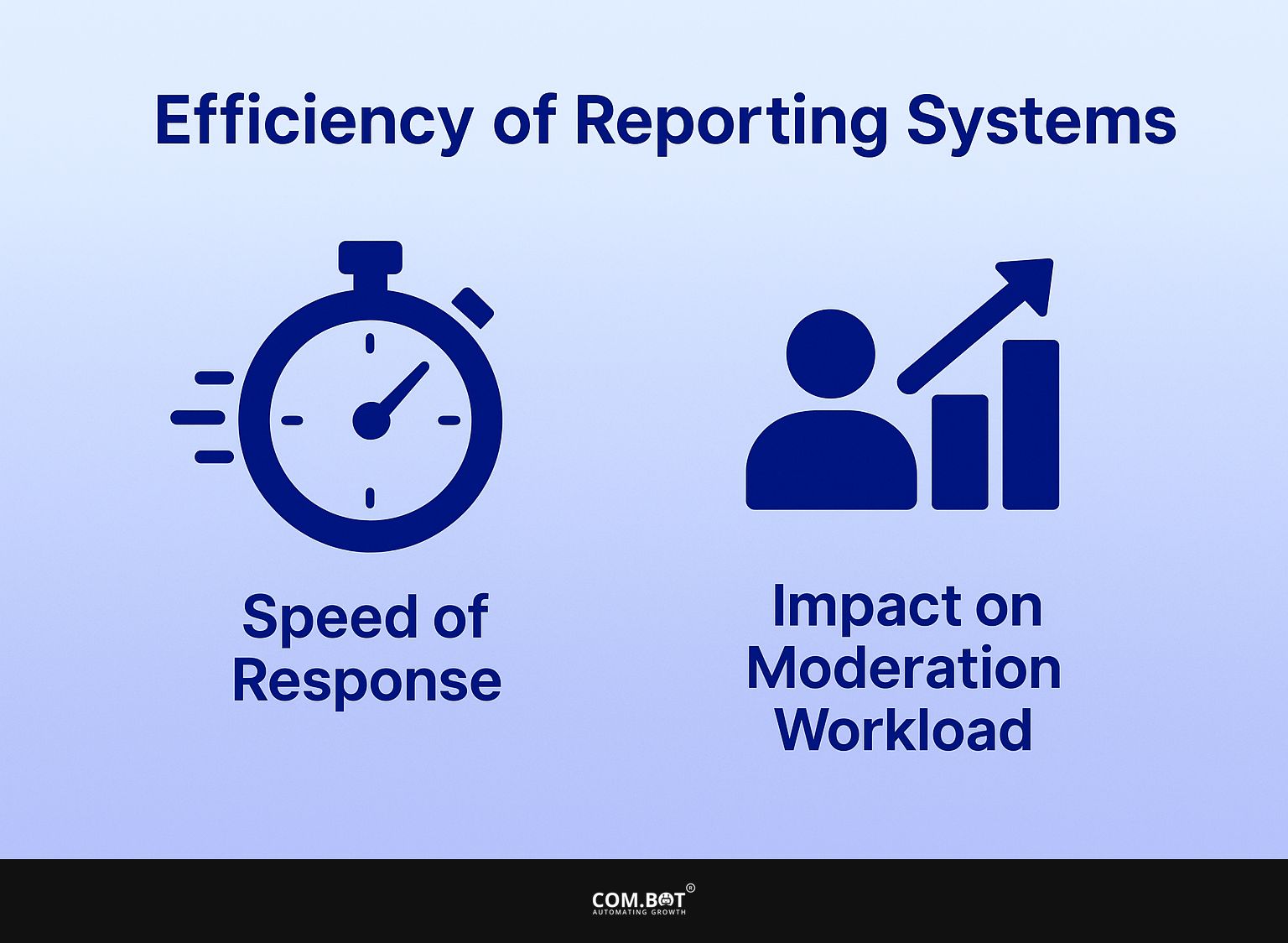
1. Speed of Response
Platforms employing efficient user reporting systems can achieve average response times as low as 5 minutes for flagged content.
YouTube, for instance, has implemented AI filters that prioritize flagged content, allowing human moderators to address urgent issues faster. Similarly, Reddit’s upvote/downvote mechanism enables community monitoring, which can lead to rapid takedowns of inappropriate posts.
To improve how quickly your platform responds, try adding AI moderation tools such as MxToolbox or using reporting systems managed by the community. Set clear rules for moderators, so they can make quick and right decisions when problems occur, creating a safer online space.
2. Impact on Moderation Workload
An efficient user reporting system can decrease moderation workload by up to 40%, allowing teams to focus on more complex content issues. Platforms like Reddit and YouTube have added user reporting tools that make their moderation tasks much easier.
For example, Reddit lets users report inappropriate content, and this automatically sends alerts to the moderators. This setup has dramatically reduced the time spent on low-priority reports.
Similarly, YouTube employs machine learning to sort flagged videos, prioritizing those that require immediate attention. Using these systems, platforms can make workflows easier to handle and make the user experience better.
Content Moderation Metrics 2024
Content Moderation Metrics 2024
Content Moderation Statistics: Global Context
Content Moderation Statistics: Market Valuation
Content Moderation Statistics: Content Moderation Efficiency
The Content Moderation Metrics 2024 The dataset gives a detailed look at content moderation, covering global trends, market value, and improvements in efficiency. As more people use digital platforms, content moderation has become very important.
Content Moderation Statistics highlight that 66.6% of the world population uses social media, underlining the vast scope across which content moderation must operate. This widespread use correlates with a 40% increase in political and social content This highlights the increasing difficulty and sensitivity in handling content that can affect social interactions and political environments.
From a financial perspective, the content moderation market is valued at $7.5 billion in 2024. This substantial figure demonstrates the industry’s importance as digital content proliferates. The market is expected to grow significantly, with a projected value of $23 billion by 2032 There is a strong annual growth rate, which implies more money is being put into technology and expanding the workforce to manage the rising amount and difficulty of content.
- Content Moderation Efficiency: Advances in technology have markedly improved efficiency, with AI moderation achieving speeds 100% faster than human moderation. This speed advantage allows for rapid response to content violations, essential for maintaining platform integrity and user safety.
- There is also a 50% reduction in manual review time, indicating that AI and other technological aids are streamlining processes and enabling moderators to focus on more complex cases requiring human judgment.
The Content Moderation Metrics 2024 highlight the essential role of content moderation in today’s digital world. As the global population increasingly engages with social media, the need for effective moderation strategies becomes more apparent. The market is growing and creating new opportunities for innovation, especially by using AI to speed up and improve content moderation processes.
Role of User Reporting in Community Safety
User reporting is important for keeping the community safe, allowing users to help maintain the platform’s trustworthiness. This approach is crucial for effective content moderation-our comprehensive guide on transparency, challenges, and strategies explores how user feedback can enhance moderation efforts.
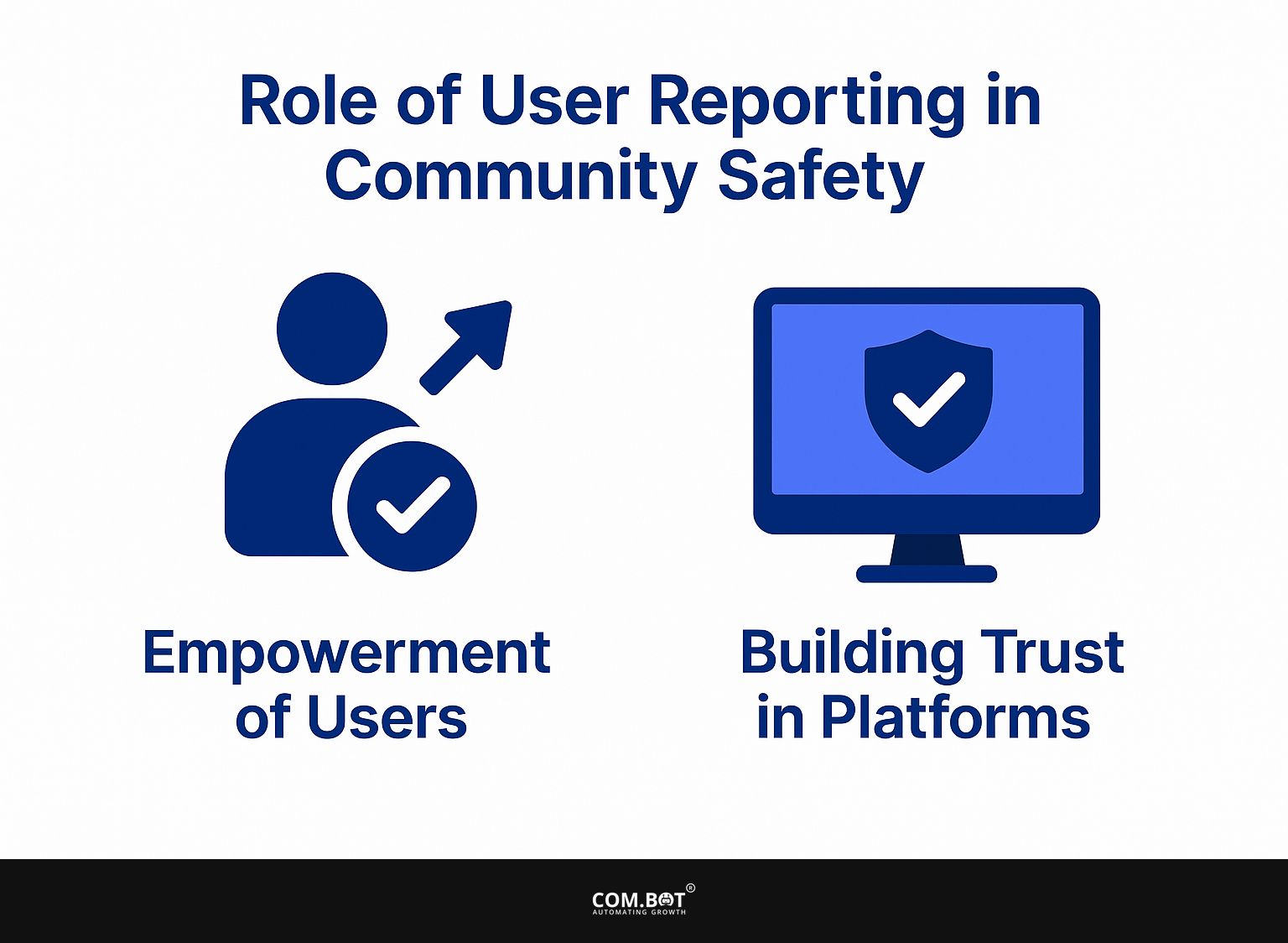
1. Empowerment of Users
User reporting lets community members mark inappropriate content, giving them a feeling of control and duty to keep the platform safe.
By participating in this reporting system, users can directly influence the health of their online communities. For example, platforms such as Reddit use karma points, which users earn by flagging unsuitable content. This creates a feedback loop, enabling active participation.
Using moderation tools like ModTools or AutoModerator can make reporting easier, enabling community members to create rules for flagged posts. This creates a setting where users feel both accountable and appreciated for upholding community rules.
2. Building Trust in Platforms
Clear systems for user reporting increase trust in platforms. 78% of users say they feel safer when they can report harmful content easily.
Platforms like YouTube and Facebook exemplify effective user reporting systems by utilizing responsive moderation. YouTube says it checks 90% of reported comments within 24 hours. This quick response time greatly increases user confidence.
Facebook uses machine learning to rank reports by how serious they are, so the most concerning content is handled first. By frequently sharing information on moderation success rates and updates with users, these platforms build trust and motivate users to help keep the community safe.
Challenges in User Reporting Systems
Though user reporting systems make moderation better, they also have specific problems that can reduce their usefulness. This is particularly relevant in the context of customer support where integrating various channels can be challenging. See also: Omnichannel Inbox: Enhancing Customer Support to understand how to streamline these interactions efficiently.
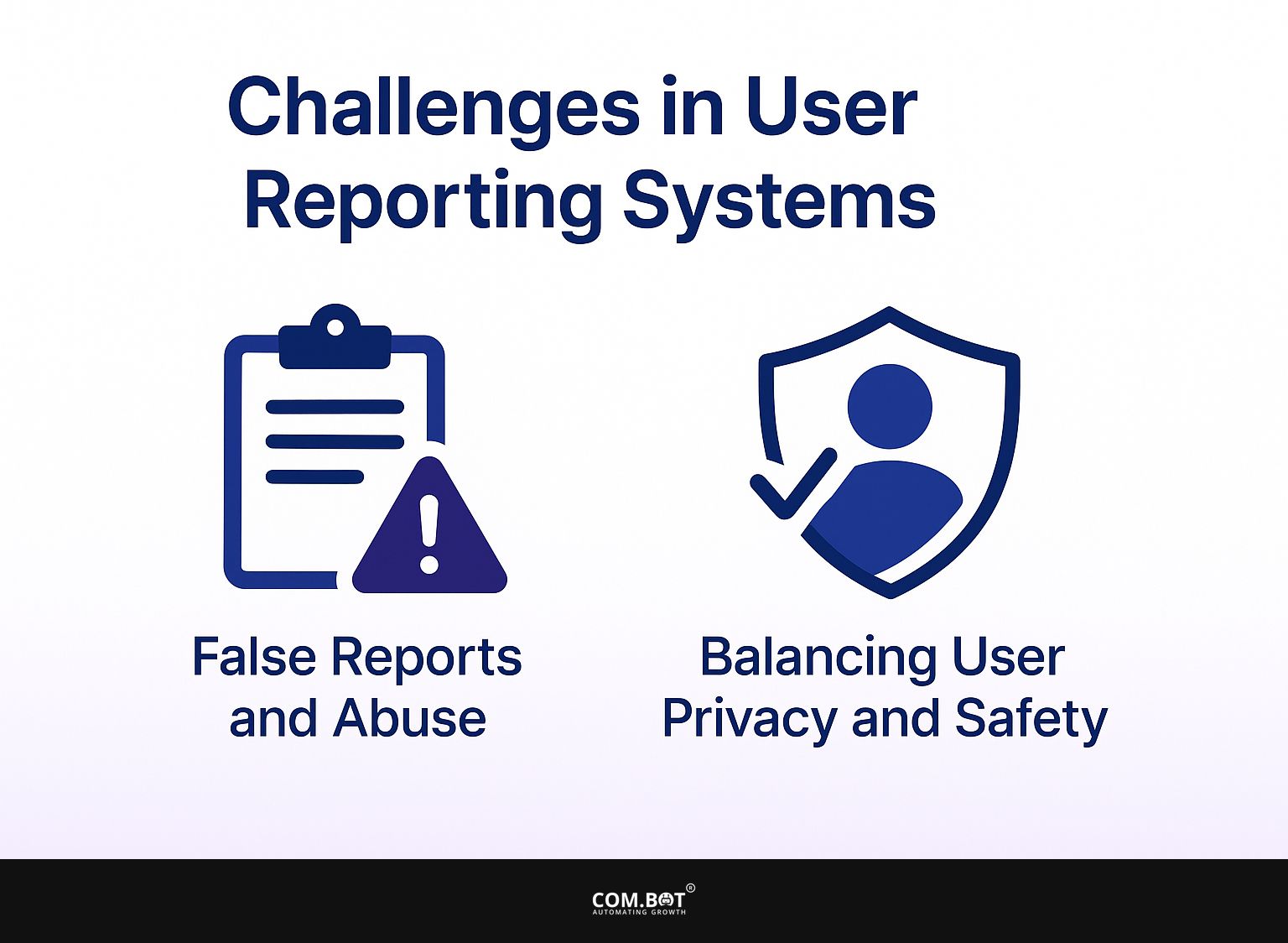
1. False Reports and Abuse
False reports can weaken user reporting systems, causing unnecessary content removal and more work for moderators.
For instance, a Reddit user was unjustly flagged for harassment, causing their content to be removed and damaging their reputation. To combat this issue, platforms should consider establishing a user reputation system that weighs the credibility of reporters based on their history. I
mplementing a tiered reporting system can also help, where repeated false reports result in penalties, discouraging misuse. Tools like Trustpilot and TrustScore can be used to monitor user activity and gather feedback, helping keep reporting fair and balanced.
2. Balancing User Privacy and Safety
Striking a balance between user privacy and safety is a critical challenge for platforms implementing user reporting systems. To address this issue, platforms can follow rules such as GDPR, which requires clear information about how data is gathered and used.
Adding options like anonymous reporting allows users to share their concerns without worrying about their identity being revealed. Regular checks of data access help confirm that only authorized people handle user information, which builds trust.
For example, platforms might use encryption methods to keep sensitive information safe while still letting them monitor reports effectively. When platforms focus on protecting privacy and ensuring safety, they can create a better experience for users.
Future Trends in User Reporting Systems
Upcoming changes in user reporting systems will be greatly influenced by AI and improvements in how users interact with these systems. For an extensive analysis of this trend, our comprehensive study on AI in social media detection examines emerging technologies impacting these advancements.
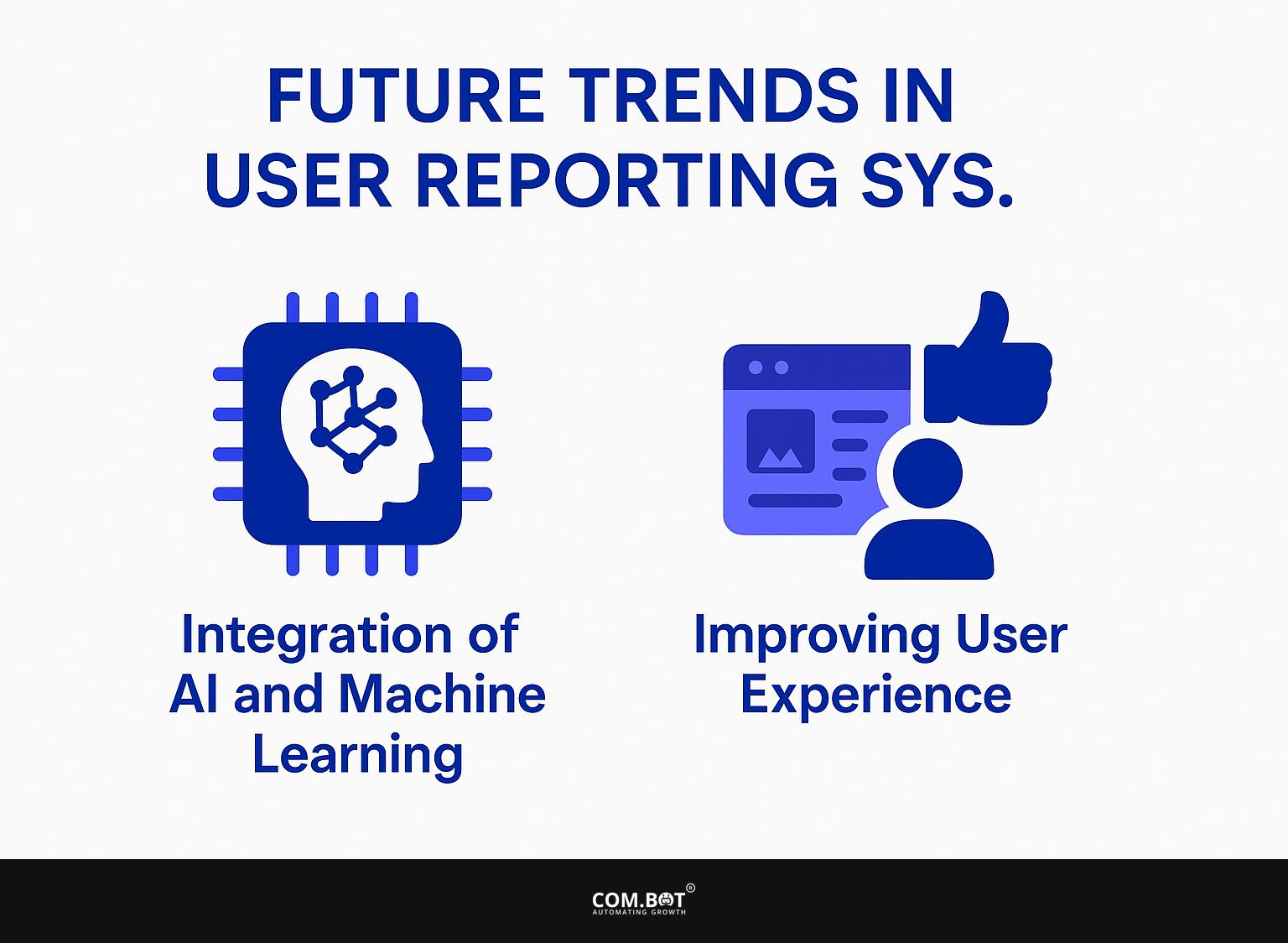
1. Integration of AI and Machine Learning
AI and machine learning are becoming integral in user reporting systems, enabling proactive detection of harmful content before user flags are required.
For instance, integrating image recognition technology can help identify explicit images automatically, reducing the workload on users and moderators. Tools like Google Cloud Vision assess image content, while natural language processing (NLP) can analyze text for hate speech or harassment.
Google’s Perspective API is a tool utilizing natural language processing to assess comments and identify their possible harmful effects. By using these technologies, platforms can improve their reporting systems, creating a safer online space and increasing user trust at the same time.
2. Improving User Experience
The experience for users in reporting systems is expected to get better, featuring simpler interfaces and clearer explanations of content policies. These changes will have a simpler reporting process with fewer steps to submit a report.
For instance, users will have access to a single submission form that aggregates various report types, reducing confusion. Users will get automatic messages about the progress of their reports and what has been done, helping them stay involved.
Tools like UserVoice and feedback loops will be integrated to gather input on report effectiveness, further refining the system for a better overall user experience.
Frequently Asked Questions
1. What is the role of user reporting systems in content moderation?
The role of user reporting systems is to allow users to report inappropriate or harmful content within a platform. This helps keep the platform safe and promotes a positive user experience.
2. How do user reporting systems contribute to the efficiency of content moderation?
User reporting systems make content moderation easier by letting users mark inappropriate content, which lessens the burden on moderators. This increases the efficiency of content moderation and allows for a faster response to reported content.
3. Are user reporting systems effective in identifying and removing inappropriate content?
While user reporting systems are an important tool in content moderation, they are not foolproof. Moderators still need to review and assess the reported content to determine if it violates the platform’s guidelines. However, user reporting systems help find and fix problematic content quickly.
4. Do user reporting systems always result in the removal of reported content?
No, user reporting systems do not always result in the immediate removal of reported content. Moderators still need to review and assess the reported content to determine if it violates the platform’s guidelines. If the reported content is found to be within the guidelines, it will not be removed.
5. Can user reporting systems be abused for malicious purposes?
Unfortunately, user reporting systems can be abused for malicious purposes. This is why platforms need a good review system to check if reported content really breaks the rules and isn’t just falsely reported by others.
6. Do user reporting systems only rely on user reports to identify and remove inappropriate content?
No, while user reports are an important part of the process, user reporting systems also use other methods to identify and remove inappropriate content. These may include tools that automatically check content and human reviewers who actively watch the platform for any issues.
